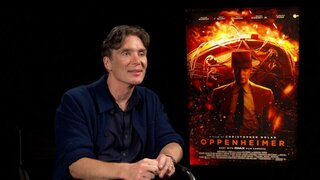How Scientists Are Actually "Incepting" People's Dreams: The Science Behind Inception
Get your totems ready.
Dreams sometimes feel just as real as the waking world, their themes and ideas bleeding into our everyday experiences. We sleep about a third of our lives away, give or take, and we have private experiences which exist only inside our minds, experiences we can’t share with anyone else. The concept of the dream world has captured the imaginations of storytellers from Windsor McCay to Neil Gaiman and Christopher Nolan, using magic and technology, or some combination of the two, as doorways to dreamland.
For most of our history, the dreams of others could only be experienced through stories, but that might be about to change. We’re building machines which can see into, and even influence, our dreams.
How to Influence Dreams in Inception
The advancement of technology is bringing some of our previously fictional dreams into reality, for better or for worse. Nolan’s Inception (streaming now on Peacock) does away with a magical dreamland in favor of a technologically shared, intentionally constructed, dream space. The fact that these dream worlds are meticulously designed for nefarious purposes like cracking into a person’s mind to steal information subtracts nothing from the spectacle onscreen.
Cobb (Leonardo DiCaprio) and his collection of dream pirates use a combination of chemical compounds and a machine disguised as a briefcase to push themselves and their target into a shared dream. The usual goal is finding information and getting it out, but Cobb gets a chance to get out of the game for good if, instead of stealing something from the target’s mind, he leaves something behind instead.
For more on Dreams:
New Study Finds People Follow Commands During REM Sleep
Scientists Confirm Rapid Eye Movements Happen Because We’re Looking at Our Dreams
Do Spiders Have Nightmares? New Evidence Suggests They Sleep and Dream
In the real world, “inception” describes the moment or act of beginning. In the movie, it has a second meaning; inception is the act of implanting an idea in a person’s mind in such a way that they believe they came up with it themselves. Cobb’s goal is to influence the target’s dreams in the hope that it will impact how they behave while awake.
Seeing inside of a person’s dreamscape to gather information, sliding into a person’s subconscious to introduce outside influence, it’s all just fiction, right? Well…
Influencing Dreams, Like Inception, in Real Life
In 2020, a small group of researchers published a study in the journal Consciousness and Cognition describing what they termed Targeted Dream Incubation (TDI). The concept was pretty straightforward, using a smartphone app coupled with a wearable sleep tracker, researchers recorded the participants’ dream state and guided them toward dreaming of particular topics. They wanted to see if they could prime people’s minds (incubate them) to dream about specific objects or ideas and then measure if those people performed differently on creativity tasks after those dreams. They could and they did.
The device, known as Dormio, takes advantage of an early sleep stage called hypnagogia – the moments when you are just transitioning from wakefulness to sleep – to insert ideas or concepts into the mind of the dreamer. Hypnagogia is of particular interest because it happens early in sleep, but has many of the same characteristics in terms of brain activity and experience as REM sleep. Hypnagogia differs from REM sleep in one other important way, during hypnagogia you’re way more susceptible to outside stimuli. During hypnagogia, it’s common to incorporate sounds or other environmental stimuli into your dreams, and that’s exactly what Dormia aims to do.
The wearable, which takes the form of a glove with electrical sensors, pays attention to the biosignals your body gives off to determine your sleep state. When it detects that you’re falling into hypnagogia it gives you audio cues to nudge you in a particular direction. Dormia continues tracking the wearer's sleep state and wakes them up with another audio cue before they fall into deeper sleep. Participants are then asked to perform related creativity tests, and those who were primed with Dormia were more successful.
“We showed that dream incubation is tied to performance benefits on three tests of creativity, by both objective and subjective metrics. Dreaming about a specific theme seems to offer benefits post-sleep, such as on creativity tasks related to this theme. This is unsurprising in light of historical figures like Mary Shelley or Salvador Dalí, who were inspired creatively by their dreams. The difference here is that we induce these creatively beneficial dreams on purpose, in a targeted manner,” said study author Adam Haar Horowitz, in a statement.
It’s not quite Inception, yet. You’re probably not at risk of your livelihood being stolen from you during a cat nap, but pretty soon you won’t even get to (have to?) rest when you sleep.
Watch the cautionary tale before it becomes a reality. Inception is streaming now on Peacock.














































